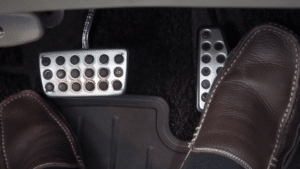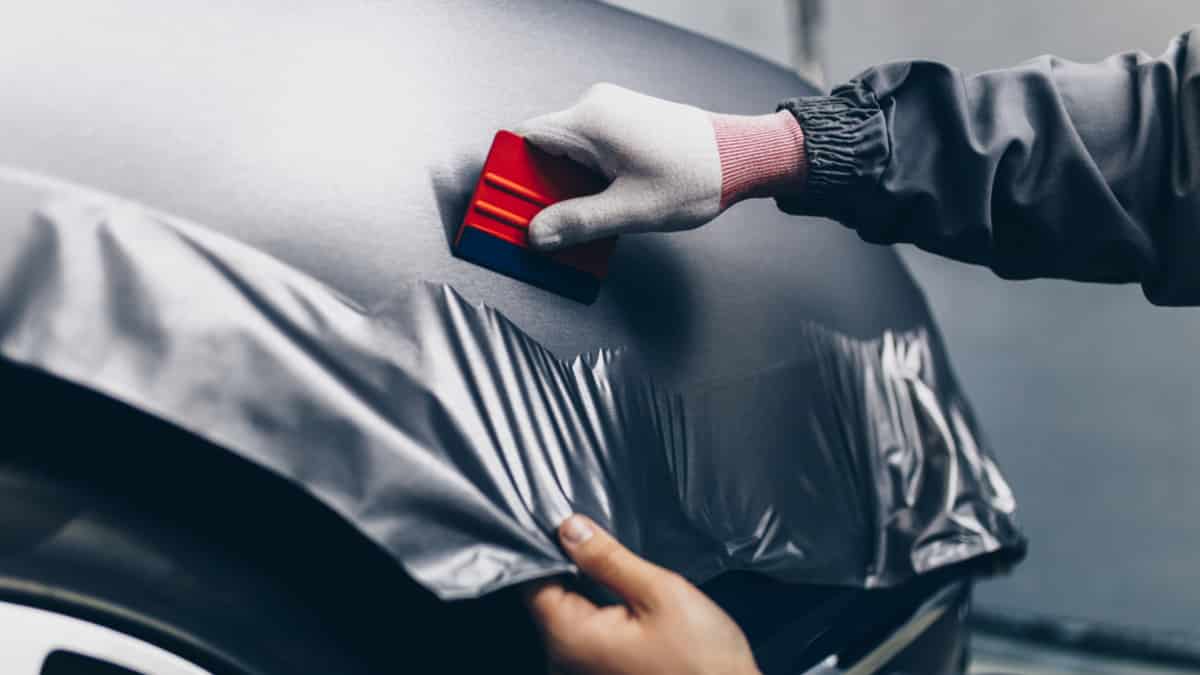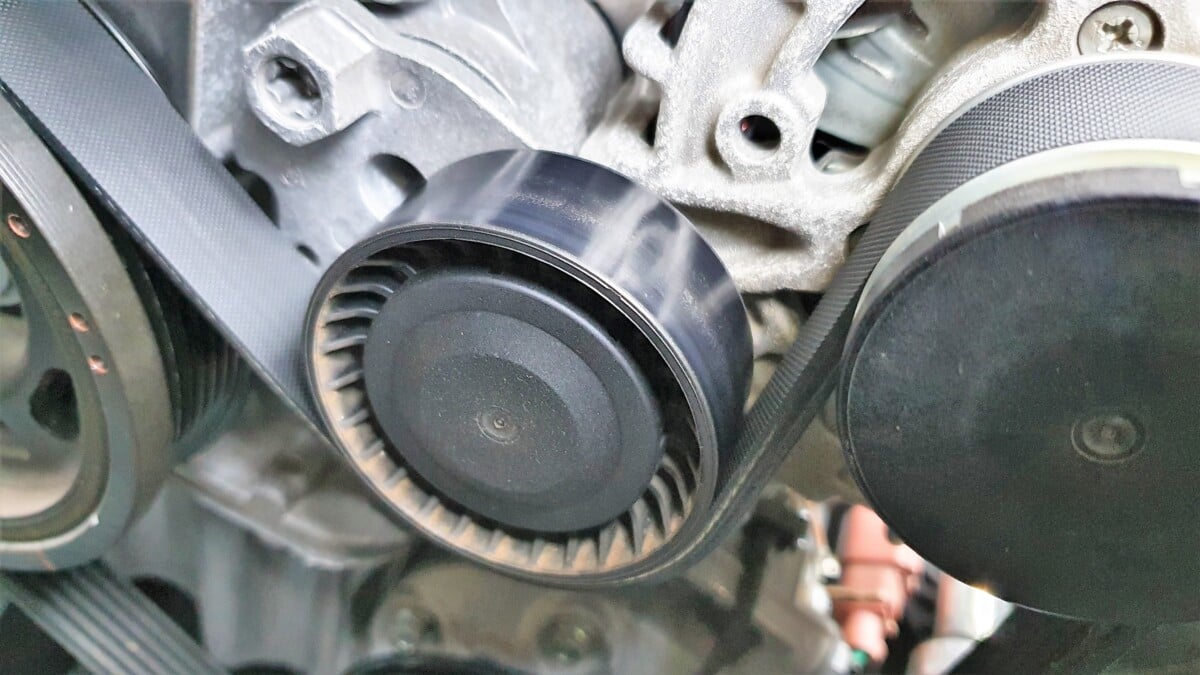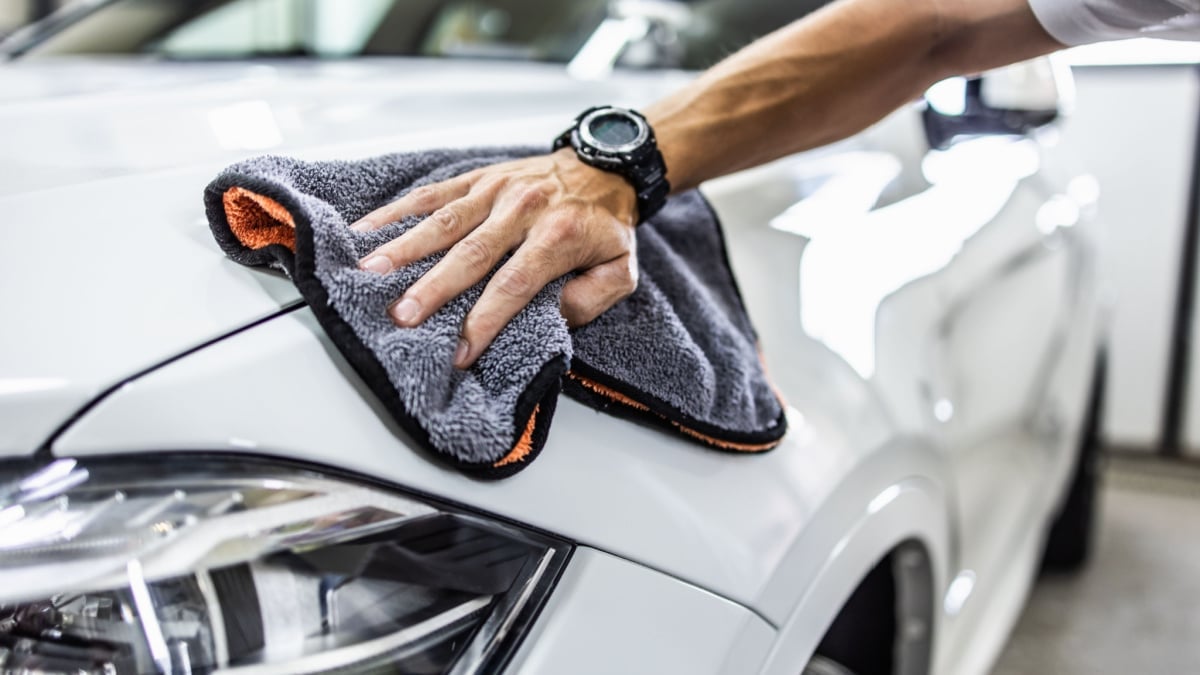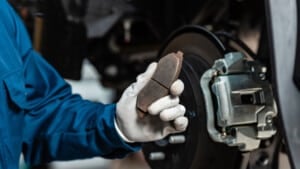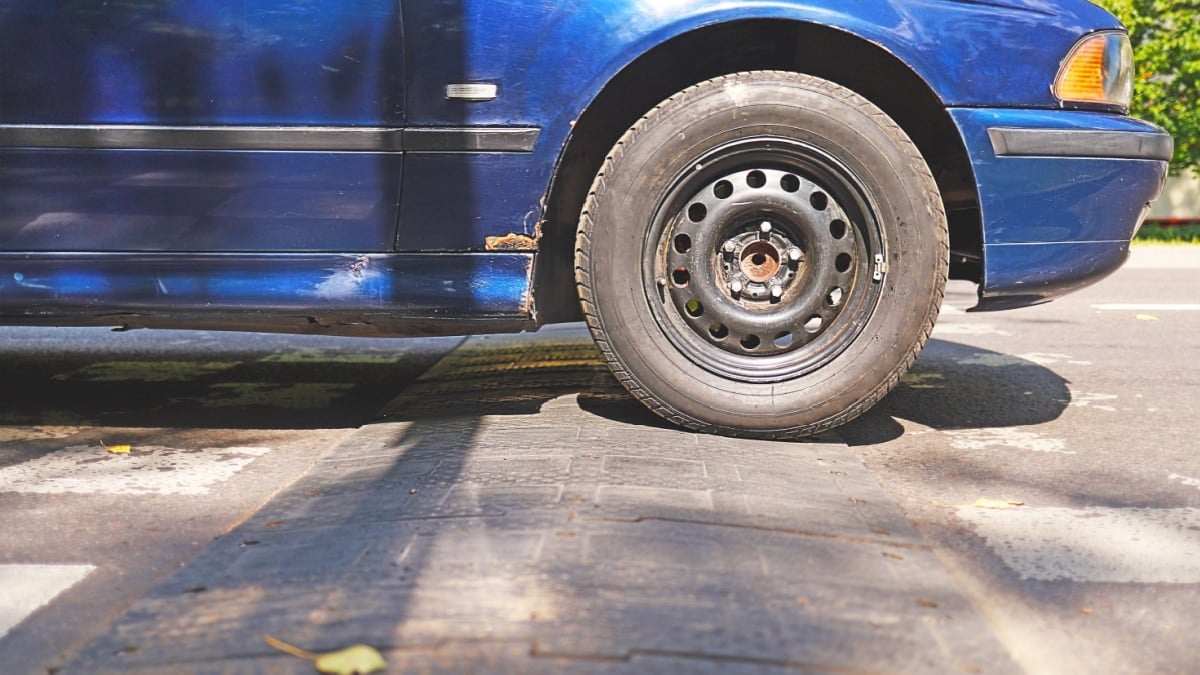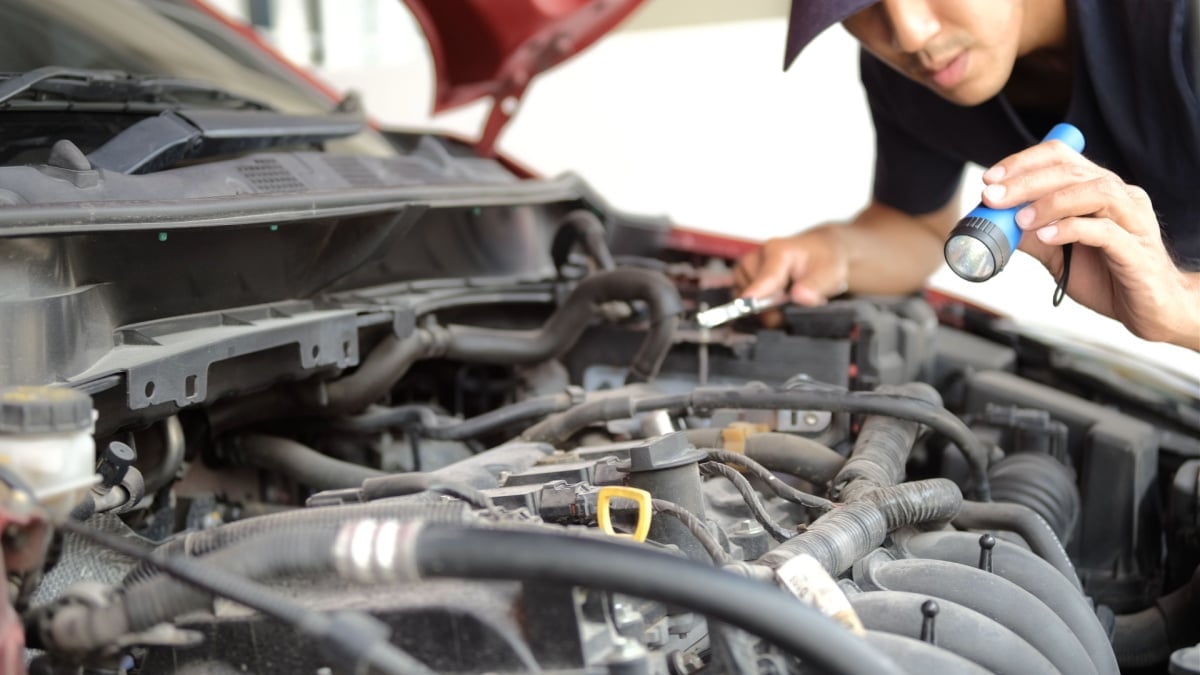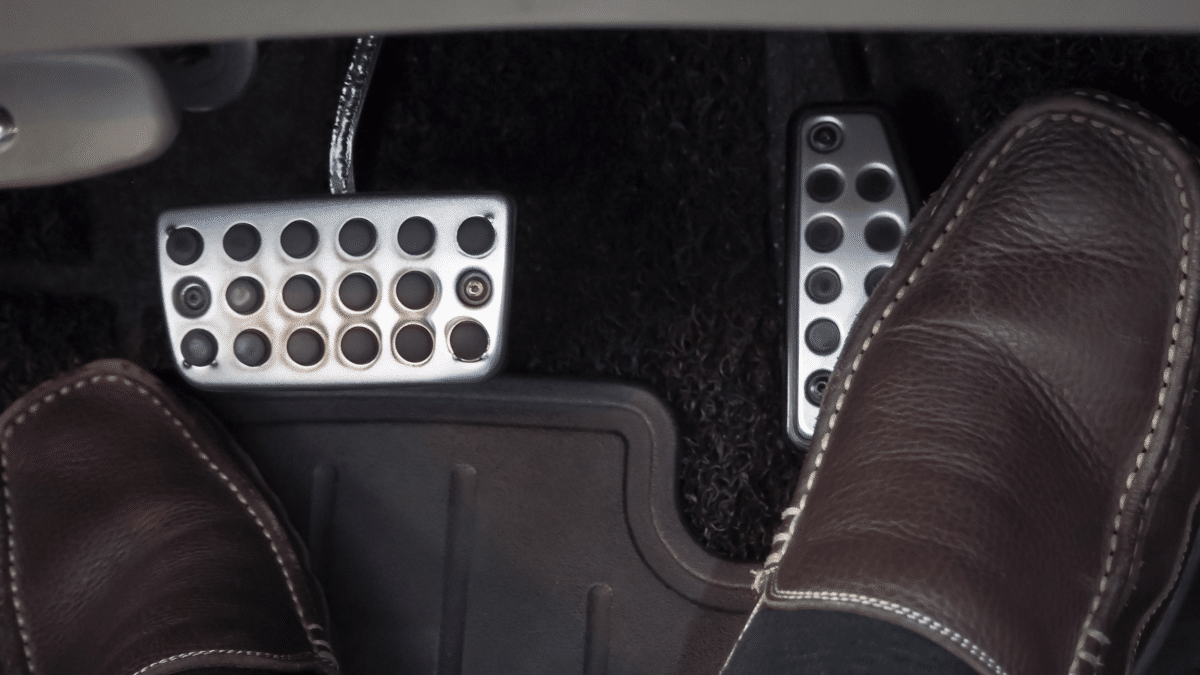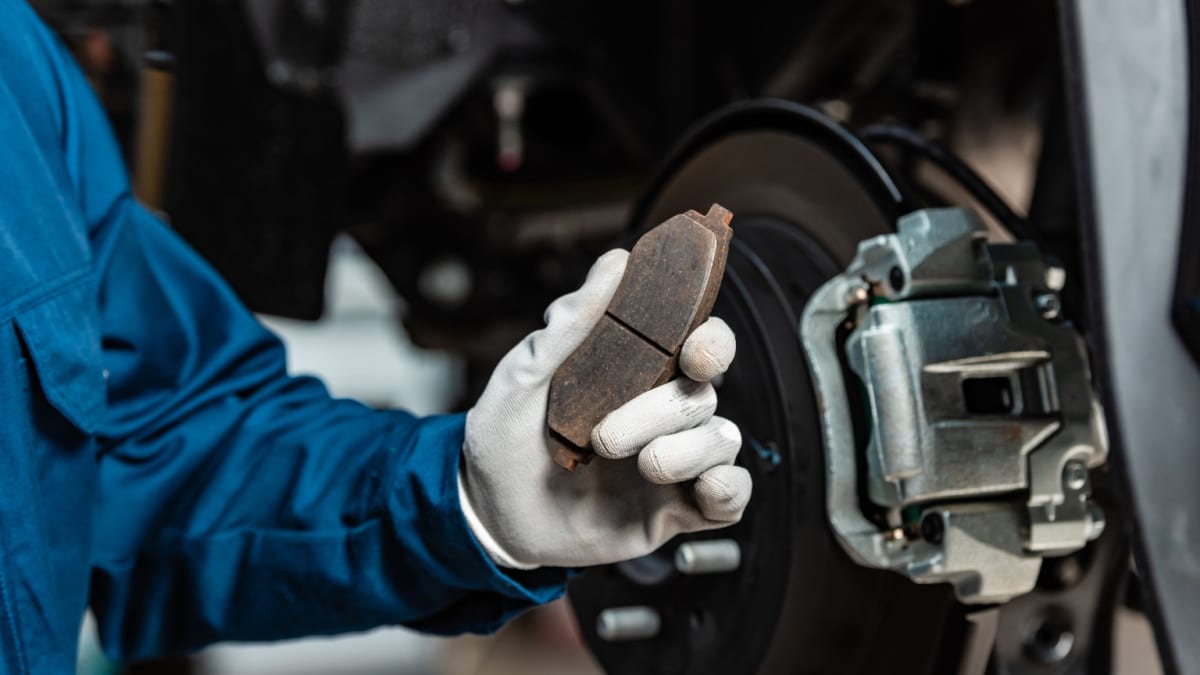Any time that your vehicle starts to make a strange noise, you will naturally be alarmed. Some noises are very distinctive and easy to diagnose, but that’s not always the case. When a car is making a rattling noise, it can be much more difficult to determine the cause and fix it.
In this guide, I help you determine where the rattling noise is coming from. With this information, it becomes a little easier to determine the possible causes and fixes to your problem, although you still may need to get a professional diagnosis to move forward.
Where’s the Rattling Noise Coming From?
Any part of your car that gets loose or breaks is capable of creating a rattling noise. That’s why it’s so difficult determining what might have gone wrong simply with this description. To further narrow down the problem, you want to know where the rattle is coming from.
Thankfully, you can narrow down the options by figuring out if the rattling is coming from under the vehicle, under the hood, or inside the car. It also helps if you pay attention to when it happens. Do you hear the rattle more while accelerating, braking, or during idle? With this information, you can dig deeper into the possible causes.
Causes & Fixes of Rattling Noise Under the Vehicle
The most common causes of a rattling noise from under the vehicle are loose exhaust components, broken suspension, bad catalytic converter, brake problems, or the wheels such as a loose lug nut.
Here is a more detailed list of the most common causes of rattling noises coming from under the car:
1. Loose Exhaust Components
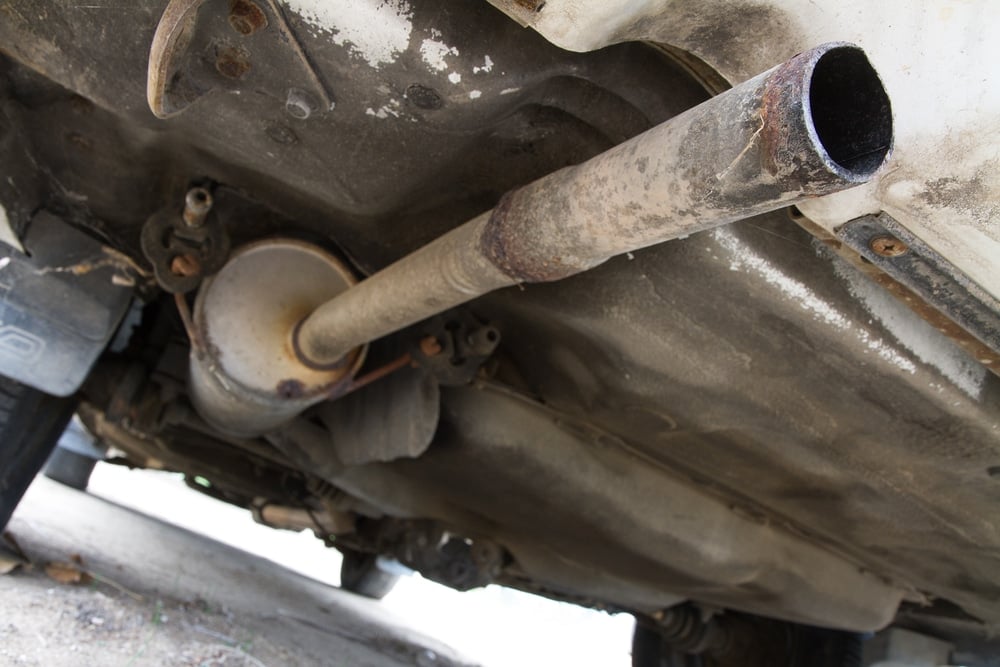
The exhaust on your car runs from the engine out the back end of the vehicle. There are many components that could be loose and cause the rattling noise. It’s wise to look at the muffler and other parts that are visible first. If the tailpipe or muffler is loose, it will rattle around. It can also bang the underside of the vehicle when you hit a bump.
The exhaust may also be suffering from a loose piece of heat shielding. These parts are strategically placed around the piping, catalytic converter and muffler. Because they are made from thinner metal pieces, they can easily become loose. They’ve also been prone to rusting out, which would also create a rattling sound.
Thankfully, the fix could be as simple as tightening a clamp or replacing a hanger. On the other end of the spectrum, you may have to replace a rusted part, which could require welding and a lot of work.
RELATED: How Much Does it Cost to Replace an Exhaust System?
2. Failing Suspension
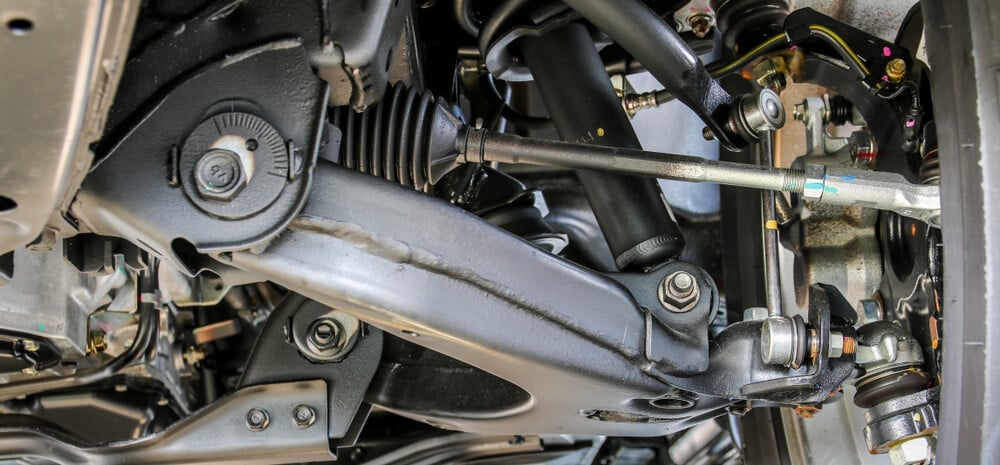
Under the vehicle, there is an interconnected system of suspension parts. The purpose of the suspension is to dampen the ride and absorb the imperfections. A suspension system can be made of shock absorbers, struts, sway bars, springs, and bushings. When everything is working, you enjoy a smooth ride. Otherwise, rattling and a rough ride could occur.
In most cases, when a suspension part is worn out, it will need to be replaced. Some parts should be replaced in pairs, such as the shocks. Don’t put off the replacement, or other parts could start to fail or you can allow uneven wear to the tires.
RELATED: How Much Does Car Suspension Repair Cost?
3. Defective Catalytic Converter
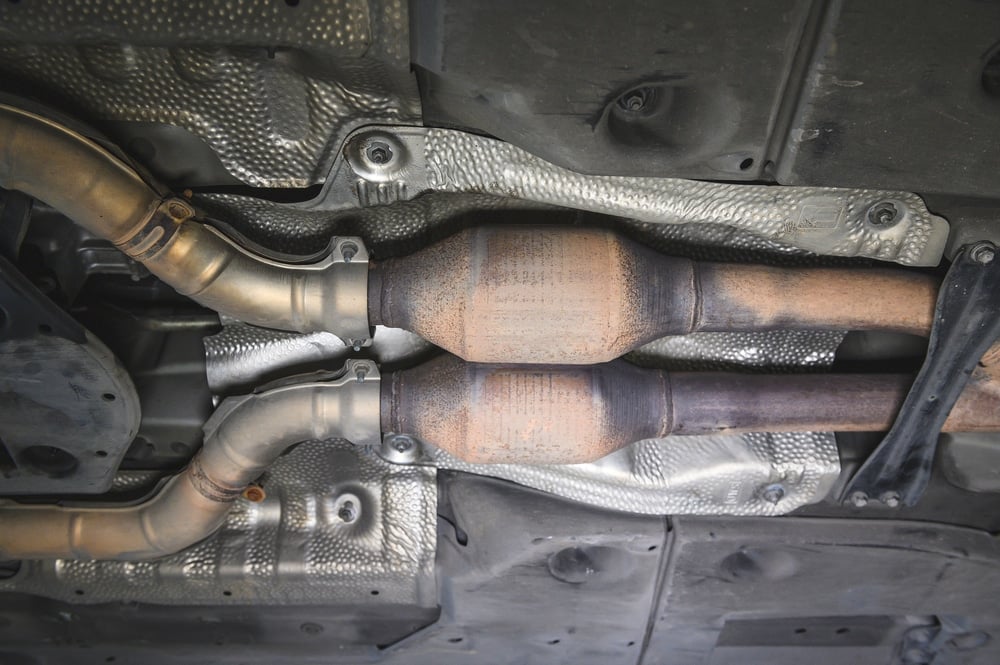
The catalytic converter is a part that makes up the exhaust system. Its main job is to control emissions by converting toxic gases into less hazardous products. Over time, the catalytic converter can become less effective. Otherwise, an accident can break some of the structure. If it is broken, it could create a rattling sound, especially while accelerating. Additionally, the Check Engine Light could come on, indicating there’s a problem with the emissions.
To repair this rattling sound, you must replace the catalytic converter. While it’s not a difficult job to perform, the part does cost a lot. In fact, it’s one of the most expensive repairs your car may ever need, aside from an engine or transmission replacement.
READ MORE: How Much Does a Catalytic Converter Replacement Cost?
4. Bad Brakes
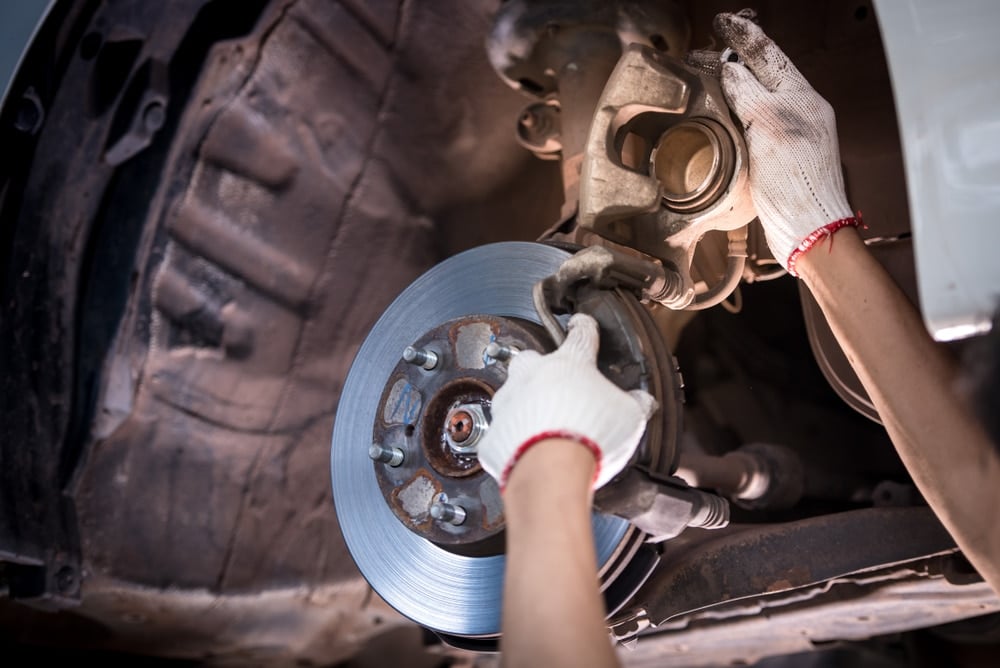
The brakes are responsible for stopping your car when you press the pedal. As you depress the pedal, the brakes apply pressure to the rotors, which are responsible for slowing the movement of the wheels. After many miles of use, the brake pads wear down, requiring replacement. If you notice a rattling or vibration as you attempt to slow down, the problem could be in the brake system.
If you don’t change the brake pads, the problems could get worse. Eventually, the worn pads will lead to uneven wear of the rotors. It’s also possible for the brake calipers and other hardware to fail, all of which can cause vibrations and a rattling sound.
You should never drive with a brake system issue. Instead, have the problem checked out right away and replace what’s worn to ensure complete safety on the road.
RELATED: Brake Noise – Causes & Solutions (Low & High Speed)
5. Defective Wheels or Tires
If you are noticing the rattling coming from under the vehicle near the wheel wells, the problem could be the tires or wheels themselves. It’s possible that a bolt or lug nut has broken loose, creating an unusual sound. Aside from this, a defective tire or wheel could also create strange sounds reminiscent of a rattle.
If a bolt is loose, the remedy is to tighten it back up. Otherwise, repair or replace whatever needs to be fixed on the wheel or tire to ensure on-road safety.
Causes & Fixes of Rattling Noises Under the Hood
The most common causes of a rattling sound coming from under the hood are low engine oil, resulting in a rattling engine. It could also be bad fuel, causing the engine to knock or it can be caused by broken internal engine parts.
Here is a more detailed list of the reasons why a car is making a rattling noise from under the hood:
1. Low Engine Oil
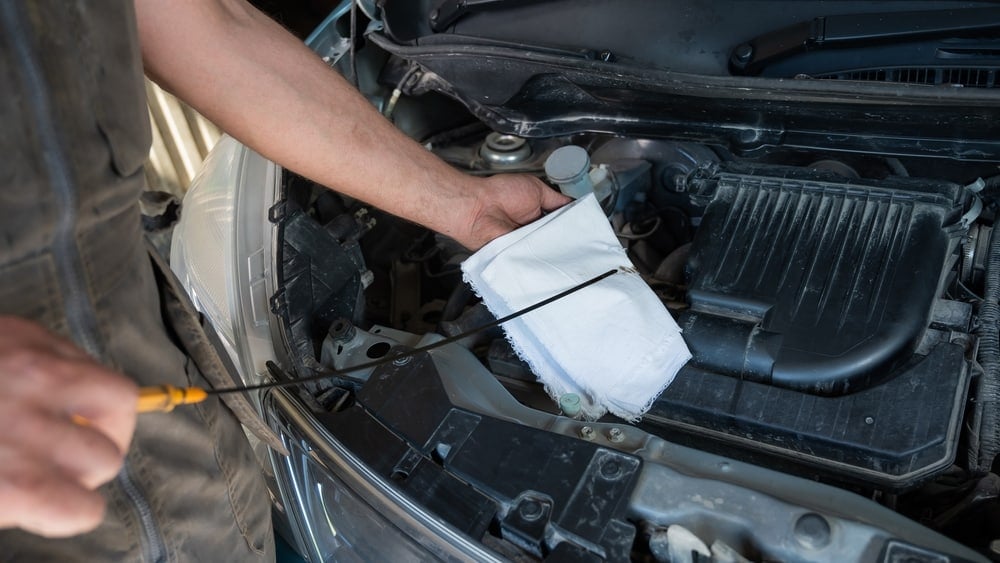
The oil pump is responsible for circulating motor oil in the engine. If there isn’t enough oil in the system, the pump cannot send the fluid around to lubricate the moving parts. Instead, the oil pump will suck in air that gets circulated through the engine. This problem can create strange noises in the engine, including rattling.
If rattling is occurring because of low oil, you want to shut off the car immediately. Add the appropriate amount of oil before proceeding any further. Otherwise, you could allow permanent engine damage, which is much more costly to repair.
RELATED: Engine Ticking Noise? (Causes & How to Fix it)
2. Defective Belt/Chain
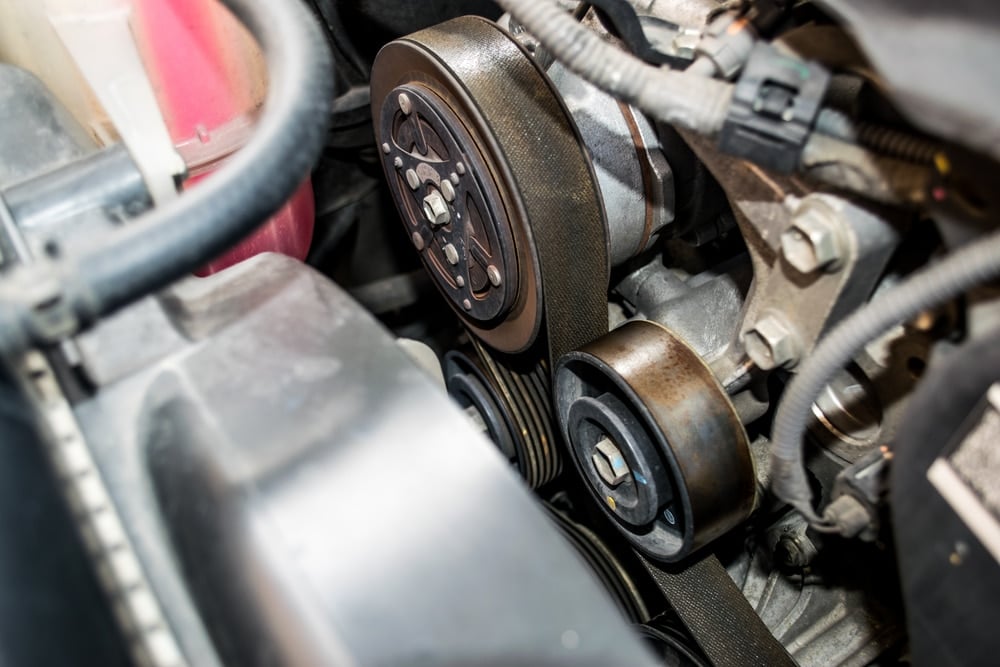
Under the hood, you will find several chains or belts that can create a rattling sound as they fail. There’s the timing chain or belt, along with the drive belt, that runs all of the accessories. Tensioners are meant to keep these belts and chains in place, but they can also fail over time.
The only way to stop the rattling is to replace either the belt or tensioners. A quick look should show you where the problem lies. Don’t let the belt or chain break or you could be facing much bigger problems.
3. Bad Fuel
Every vehicle requires a certain type of fuel. If you choose to put something in with a lower octane level, you could notice a pinging sound that creates a rattling. This pre-detonation creates incorrect timing, causes problems with the knock sensor and can result in increased carbon deposits.
The only solution to this problem is to fill back up with premium fuel. If you already have a full tank, you might have to mix it up over time as the tank continues to drop lower. If the problem doesn’t go away with better fuel, you should have the vehicle looked at.
4. Malfunctioning Valve Train
Your engine’s valve train is driven by the camshaft. It’s needed to open and close the valves at the correct timing so the fuel can move in while the exhaust moves out. If the valve train becomes worn out or gets out of alignment, you could notice rattling.
Modern car models use hydraulic lifters, and if the engine oil gets low, air can get trapped in them, resulting in a rattling engine.
Depending on the lifter type, you may be able to simply adjust the valves (Usually on older engines). There’s also the chance that an additive might fix your problem to keep the valves from sticking. Otherwise, you must replace the defective components.
5. Rod Knock
The connecting rods transmit rotary motion from the crankshaft to the pistons, which creates an up-and-down motion. If the oil is dirty or contaminated, a rod knock could occur. It can also happen when the bearings wear down.
Once the rod knock starts, you want to have the engine looked at immediately. In many cases, you will need some extensive engine repair, but it’s possible to prevent this with speedy attention.
6. Piston Slap
High-mileage vehicles can be prone to piston slap. If the pistons are only fitting loosely, a rattling can occur, especially at a cold start. Once the engine heats up, the sound might disappear.
To repair the problem, you must fit oversize pistons in the vehicle, but this is not cheap. Plus, it’s often not worth doing if the car already has a lot of miles on the odometer. Otherwise, some people choose to keep driving until the car fails.
7. Defective Water Pump
The car’s water pump is driven by the engine and is responsible for circulating coolant through the motor and radiator. If the water pump starts to fail, you may hear a rattling noise and the engine could overheat.
In some cases, the water pump just needs to have a pulley replaced. Otherwise, if there’s a leak or the pump is defective, it’s time to replace it.
8. Bad Harmonic Balancer
The harmonic balancer is a type of counterweight that’s designed to reduce vibrations from the engine. It’s supported by a rubber ring that can pull away from the harmonic balancer, leading to another type of rattling noise.
Sadly, once this happens, the only solution is to replace the harmonic balancer. Thankfully, this repair isn’t normally costly.
RELATED: 5 Symptoms of a Bad Crankshaft Pulley
9. Broken Bracket, Pin or Bearing
Around the engine and other under-hood components, you will see a lot of brackets, pins, bearings and other hardware. If any of these parts become loose, you can start to hear rattling. The sound could be from a loose accessory bracket, worn bearings in the crankshaft, a cracked flex plate or worn piston pins.
The most difficult part of this fix is figuring out what’s causing the rattling. Once you find it, you know what needs to be repaired or replaced.
Causes & Fixes of Rattling Noises Inside the Car
The most common causes of rattling noises from inside the car are loose parts in the glove box, the door pocket, or the trunk. It could also be rattling internal components such as loose air vents or broken actuators.
Here is a more detailed list of the common causes of rattling noise from inside the car:
1. Loose Storage Compartment
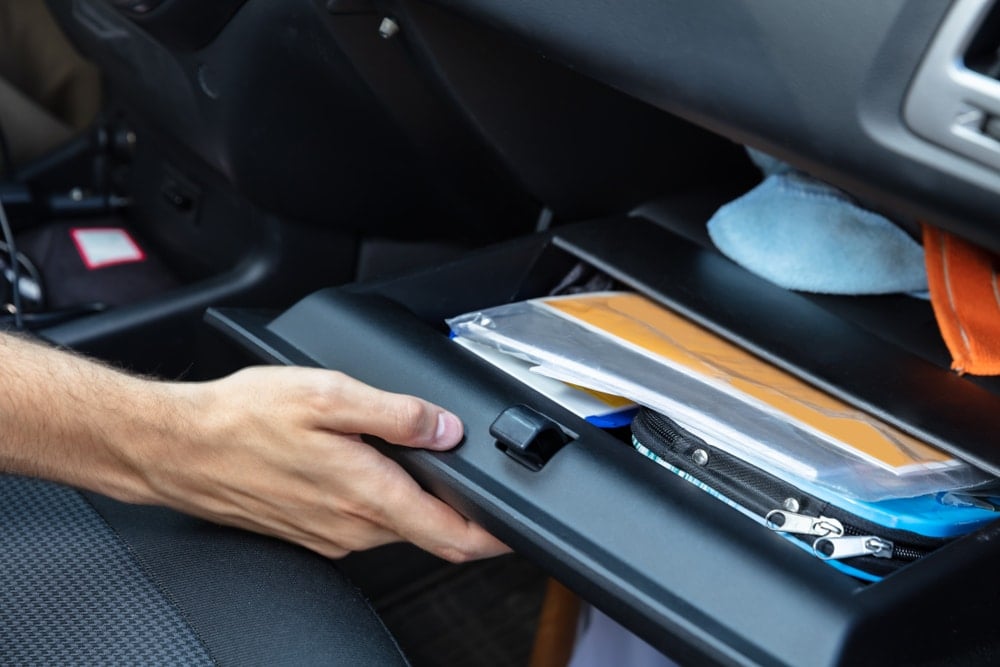
There are numerous compartments located within the car’s cabin. Consider the glove box, center console and door pockets. Within any of these compartments, you could have items rolling around that are creating the noise you hear.
In the trunk, you could also have parts rolling around or clanging that are creating rattling noises in the cabin. To prevent this, you want to remove anything from the trunk that doesn’t belong.
Check all of the storage spaces. If there are items rolling around, you want to secure them. It’s also possible that the glove box door, trunk lid or other car components are out of alignment. With this problem, you would need to realign the parts.
2. Rattling Interior Components
Inside your car, you might have gear that is causing the rattling. For starters, look in the cup holders to see if something is moving around. Beyond that, the noise could be caused by an open window or an unsecured seat.
Inspect all of the interior components to see where the noise could be coming from. Try putting up the windows or folding the seats down to see if it resolves the issue.
Is it safe to drive a rattling car?
No. Since there are so many different things that can cause a rattling noise, it is not safe to drive without determining where the noise is coming from. The cause might not end up being very serious, but you need to inspect and diagnose it first to be sure.
Can a transmission make a rattling noise?
Yes. A transmission can make a rattling noise, but this isn’t very common. If you hear a rattling sound under your car, it is more likely a problem with the exhaust system, catalytic converter, or suspension.
How much does it cost to fix a rattling car?
There is no way to tell how much it will cost to fix a rattling car, due to the number of different things that can cause the rattling noise. For example, if there is a loose part on the exhaust system, you can fix it for free. But if it’s caused by a failed engine, it can cost over $10,000.
Can low engine oil cause a rattling noise?
Yes. Low engine oil can cause air to enter the hydraulic lifter and create a rattling noise. It can also damage the rod or crankshaft bearings, which will lead to a rattling sound and a very expensive repair bill.
To fix a rattling noise, you must first determine where it’s coming from. You could notice the rattling under the vehicle, under the hood, or inside the car. The reality is that most any part of the car can cause a rattling when there’s a defect, so proper diagnosis is essential.
The best thing to do is take it to a mechanic and have them diagnose the problem if you feel that you don’t have enough knowledge to do it yourself. If the problem is more serious, like an engine problem, you may also need to take it to a shop. In any case, don’t ignore strange noises coming from your car!
Learn more:
- Car Makes Noise When Turning? (9 Causes & How to Fix it)
- 7 Engine Noises You Should Not Ignore (& What They Mean)
- Car Making Squeaking Noise While Driving? – Causes & Fix
Categories: Troubleshooting


